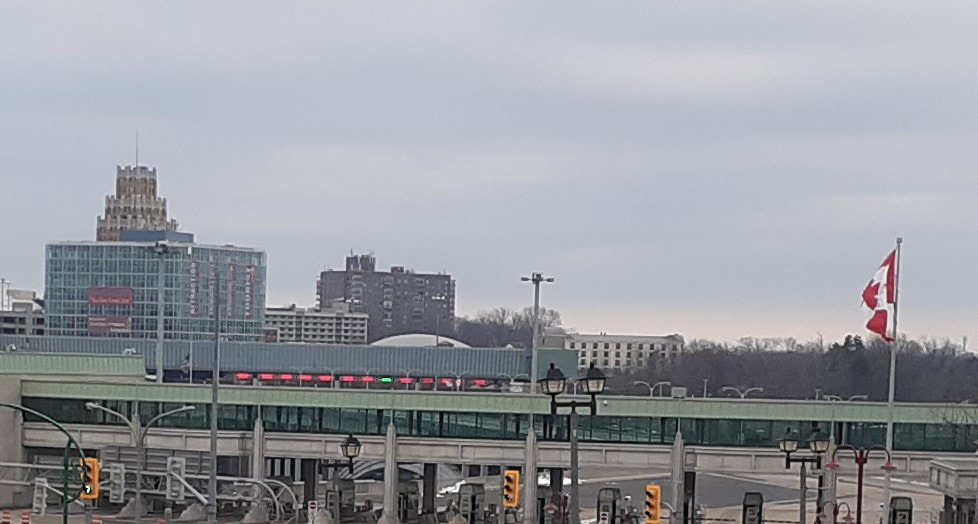|
Immigration cases can be long and complex, but there are many ways to make a matter easier and faster, both for yourself, your lawyer, and your file. In this post, I will go over several DOs and DON'TS when it comes to making your matter go as smoothly as possible.
DO
1 Comment
Canada shares a land border with one other country: the United States, as well as links to the rest of the world via ships and planes. Points of Entry into Canada, whether at the land border or in other countries, are governed by the Canada Border Services Agency, for both people and cargo (i.e prohibited items). In this post, I will overview the process, because entering Canada is an inevitable step for any immigrant, yet is separate from and apart from IRCC (Immigration, Refugees, and Citizenship Canada)'s purview.
When someone arrives at a border, CBSA officials can ask questions of them, search their vehicles, luggage, or electronic devices, in order to look for any inconsistencies in a person's story. As they have the discretion to deny a person entry irrespective of whether they were given permission by IRCC, the importance of telling them the truth is absolutely vital. Although regular travelers to Canada, and those entering from the United States, can bypass much of this process upon certain applications, entering Canada is never a casual matter. For non-citizens, entry is generally more stringent than for citizens, as a Canadian passport gives . Temporary visitors have to convince an officer that the reasons for their entry match their approved visa. Someone entering Canada on a study permit, for example, has to convince the border agent that they are in fact going to study, with evidence such an invitation from the school, proof of tuition payment, housing papers, etc. Much of this information should already be available from the original application, but having it at in an organized package during a crossing will make the process much simpler and easier. As your lawyer, I will create a Port of Entry package tailored to your specific needs. For people in more complex situations, such as asylum seekers, those who have been previously refused entry to Canada, or with a criminal conviction in their past, the legal ramifications of anything they disclose at the border can be very serious, and it is especially important to have the backing of experienced counsel, both in preparing for any interview with CBSA officers, and to provide relevant legal authorities, including guidelines, regulations, and laws, to increase their chances of being allowed in. Citizenship is the final status obtained after an (often very long) process. With it come the rights and privileges of voting in Canadian elections, coming and going from Canada at will with a Canadian passport, and being able to work in certain government/classified positions, as well as being able to sponsor others to come to Canada. Unlike in many other countries, citizenship can be granted by no more than being born within the country's borders (with certain exceptions, such as diplomatic missions). Nearly a quarter of the Canadian population is foreign born, and they acquired citizenship after a thorough process of evaluation by the government.
A key portion of the application is the residency requirement, derived from Citizenship Act regulations. The requirement is that an application maintain their residency in Canada for a total of three years (1095) days minimum in the five years before applying. Importantly, these are not required to be consecutive times, only total. There are exceptions to strict physical presence, such as children going on a trip with parents, travel as part of employment, or visiting relatives. However, determining whether an exception applies in certain situations can be tricky, which is why having a lawyer's assistance for citizenship applications is vital. A permanent resident must show evidence of their living in Canada, including old addresses, proof of any travel history outside Canada (from passports), references from landlords, former employers, or others who can verify the information in the application. Contradictory information could result in delays, or even a rejection at worst. This is why it is important to gather and retain information, to save time during the application process. It can then be a simple matter of adding up the days and knowing for certain you are eligible at the time you apply. Rejected citizenship applications can only be challenged in Federal Court, which is both time-consuming and expensive; this is why it is so important to have a strong application to start with. Even after all of the above, and the application is approved, an applicant needs to pass the citizenship test (on subjects including Canadian history, geography, and politics), before their citizenship certificate is approved (and with it the ability to obtain a Canadian passport or register to vote). This is just a brief overview of the complexities of citizenship law. Adopted children, residents outside Canada with parents born before certain dates, and other exceptions have been the subject of litigation too detailed to go over in this space. In future posts, I will discuss some of these issues further. |
About
This blog details the many legal issues among Luka's practice areas, for a general audience. None of this information is a substitute for legal advice. Archives
April 2023
Categories |

 RSS Feed
RSS Feed